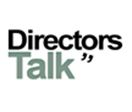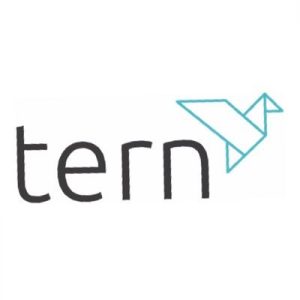Tern plc (LON:TERN) Chief Executive Officer Albert Sisto caught up with DirectorsTalk for an exclusive interview to discuss their recent investment in Talking Medicines, how to funds will be used, the other companies in their portfolio and the synergies amongst them.
Q1: Now, Tern has recently announced an investment in a new company for your portfolio, Talking Medicines. Can you tell us more about Talking Medicines and what attracted you to the business?
A1: Talking Medicines is a really interesting opportunity for Tern in that it really is taking advantage of the popularity of social networking and social media and the signals that can be collected from this source of information and with their particular focus on pharmaceuticals and providing better outcomes for patients.
I was involved early days with Brandwatch and, here in the US, Social Survey, two companies that really changed customer experiences with the nature of their ability to mine the internet for information. The problem that Talking Medicines is solving is that the pharmaceutical companies are spending in upwards of $30 billion, all in, on their marketing for their products but their products and their marketing is targeted towards more to the doctor than the individual patient. As such, there’s this gap, the gap where, if you will, the medicines are spoken about in Latin until you go to the chemist and the chemist gives you your prescription and now you have to figure out in English what the proper course of action is and then you have no way to report your ability to talk about the medicines benefits to you. So, Talking Medicines really provides a bridge for the drug companies, the insurance companies, and doctors, to learn more about how patients deal with their medicines.
What really makes us even more attractive to our company is that they’re using really advanced artificial intelligence, machine learning and natural language processing capabilities of which we believe have synergistic values to the rest of our portfolio.
Q2: It certainly sounds like the found a gap in the market. Now you’ve said that the funds that you’ve provided to Talking Medicines will be used to build out its product team and launch its new artificial intelligence data service. Is this a case of scaling what Talking Medicines already has or are there significant further developments required?
A2: We really liked to invest in companies where there’s minimum product risk and Talking Medicines is at a stage now where they’ve validated their technology and their product and need additional resources now to build it out, to grab all the data signals that are available worldwide to provide the pharma companies with the information.
So, this funding is really designed to enable them and accelerate their ability to deliver, to their customers, a better customer experience and do so with the use of the advanced technologies like artificial intelligence, and they need resources to do that.
We believe this funding will provide them that necessarily capability to grow the business.
Q3: There are five other companies within Tern’s portfolio and there’s been some recent excitement, particularly around the potential for Wyld. Can you give us a brief overview of dealer companies in the portfolio? Are there any synergies with Talking Medicines and what are these companies currently focusing on?
A3: I think if you look at our portfolio, we believe there are synergies across the board and, particularly now in the light of how business models in this new normal have changed, we have Device Authority which provides for the lifecycle management of applications and devices talking to them. So, there’s synergies there in terms of providing capabilities to secure information, moving back and forth within the framework of the Talking Medicines operation.
We also have Fundamental Surgery, this is a surgical training company that’s really targeting the enterprise, the people making new medical robots and new devices and new procedures to accelerate their ability to train physicians. Again, in this contactless world, this ability to have remote training, virtual reality, is exciting for the companies because it bridges this inability to service and go to universities and hospitals and teach the physicians, the surgeons, how to use these products.
So, we believe we’re in a really excellent situation with these companies like Device Authority and Fundamental and InVMA, with its new asset minder product, again is focused on this contactless ability to monitor, measure, and look at the performance of machines, processes etc. on the factory floor and enable remote management and remote diagnostics and remedial information management of the factory floor.
So, the synergies that we have here are pretty, pretty strong and with the addition of Wyld and its ability to really manage the care home environment through its ability to link and mesh disparate devices together to create one sort of contactless measurement is part of what we are we look at as benefits of the portfolio for our shareholders.
Also, now with we’re Talking Medicines, we bring this additional expertise with artificial intelligence and machine learning, in particular, that we believe will run through all of the products that our companies are providing to the marketplace.


